- Home
- Anne Lamott
Blue Shoe
Blue Shoe Read online
Praise for
Anne Lamott and Blue Shoe
“Easily her best fiction to date. Lamott . . . creates personalities as complex and dysfunctional as J. D. Salinger’s Caulfields and Glasses, minus the misanthropy. The characters who inhabit the fictional world of Anne Lamott’s stories are honest—sometimes brutally—but lovable.”
—Chicago Sun-Times
“Admirers of Anne Lamott’s bestselling nonfiction books will find a lot to love in her new novel. The characters in Blue Shoe are forever making classic Lamottian heartbroken quips . . . also much in evidence is Lamott’s trademark insightfulness. . . . It takes courage to create a character as inert as Mattie Ryder . . . a heroine with nothing to offer but her imperfections. Lamott also knows the power of a place. We know where we’re going when we open her books, and that alone is a substantial literary pleasure.”
—The New York Times Book Review
“The portrait of our wounded humanity and the difficult-yet-enduring aspects of family relations is stirring and authentic.”
—Los Angeles Times
“Anne Lamott’s writing is a celebration of oddballs, or depending on how one defines ‘normal,’ real people. Her novels drop us right down in the middle of a life, with all of its confusion, disarray and mess . . . there is self-recognition, even endorsement, in Lamott’s very funny and boldly honest descriptions of daily life . . . at once ironic and sincere, weary and full of wonder—a world in which God is really cool, all the friends are really funny, and grace eventually gets there.”
—Pittsburgh Post-Gazette
“Prosaic details mix with drama to profound effect . . . philosophical, honest, and poignant, Lamott writes about real life and how it goes on, through good and through bad. Her achievement is to convince us that a life merely going on is enough.”
—Boston Herald
“How strange and wonderful . . . to read a compassionate yet lively novel about surviving even as you wait for life to change. Even if it’s not possible to achieve happiness all at once, Lamott writes, seasons will pass, children will grow, you will find love and some sort of peace. At least until the next crisis. Blue Shoe is yet another of her tributes to the imperfect beauty of families, however patchwork and offbeat they may be.”
—The Miami Herald
“Anyone who’s ever had a heartache—or a family—will relate to Anne Lamott’s poignant novels.”
—Rosie
“Head-bangingly real . . . The greatest of Lamott’s gifts is her narrative voice, consistently lively and smart and funny, always connecting.”
—Newsday
“The brilliant and gritty Lamott understands that life is good, bad, weird, and sad—sometimes all at once. Her strength is making readers care about her characters, and care enough to believe in them. Lamott’s Mattie Ryder is so real, so needy and yet so resilient, that some readers will find themselves wanting to call her just to see how her day went.”
—St. Louis Post-Dispatch
“Fans of Lamott’s offbeat characters will warm to her newest heroine, Mattie.”
—Glamour
“A love story, a story about coming to grips with the past, a story about families and faith and about just plain coping with the difficulties of everyday life. Blue Shoe is a book you’ll be eager to return to when your own family’s daily problems tear you away from it.”
—Chicago Tribune
“Anne Lamott is such good company. Bumbling and sharp, hyperbolic yet true, Lamott of the page can make even the smartest readers wish that Lamott in the flesh would turn up on their doorsteps to nibble chocolate and discuss the difficulties of making it safely from today to tomorrow . . . [her] voice is one in which certain imperfect readers can count on hearing some small but worthwhile truths.”
—The Cleveland Plain Dealer
“Lamott creates believable characters in tough . . . situations without being clichéd—while also maintaining a lighthearted, funny, and inspiring tone.”
—Elle
“Sharp, irreverent wit . . . offers proof that her clever approach to craft does indeed produce superior fiction. Lamott has forged a sarcastic, self-aware, loving and lovable hero in Mattie Ryder.”
—Time Out New York
“Anne Lamott takes on the hip-hugging chaos of kids, aging parents, and complex memories in her dead-on, charming new book.”
—O, The Oprah Magazine
“Lamott keeps the emotional roller coaster in high gear throughout. . . . Mattie’s honest search for her own truth will win you over.”
—The Denver Post
“In Blue Shoe Lamott crafts a tale in which many women will find themselves. . . . Lamott writes candidly about the deals adults make, the bargains with God to have our lives turn out ordered and content, the moral quandaries we eschew for comfort’s sake.”
—The Baltimore Sun
“Anne Lamott has a gift for depicting the divine in ordinary life. Blue Shoe is the latest glorious installation in her offbeat literary world of slightly zany folks, slogging through their ordinary lives with occasional helpful nudges from above.”
—The Atlanta Journal-Constitution
“Lamott is a natural, lyrical writer with a dynamite sense of humor, which she passes on to Mattie. It makes reading the book seem like spending quality time with Anne Lamott and you don’t want it to stop. It is funny, serious, thoughtful, weird and warm-hearted—all at the same time. Blue Shoe is probably Lamott’s best novel. The book turns into a wonderful manifestation of the love of a parent for her children.”
—Deseret News (Salt Lake City, UT)
“Those who know how funny and right-on Lamott can be won’t be disappointed by this latest protagonist. The novel’s antic black humor . . . provide[s] classic Lamott entertainment.”
—Milwaukee Journal Sentinel
“Lamott’s use of language allows us to see the smallest details from a fresh perspective, and her stories of motherhood and faith never fail to entertain and move us, all within the tightly wound ball of a good literary yarn . . . and her story is as good as her funky turn of a phrase.”
—Library Journal
“A funny and disarming tale of real people trying to get through their days. . . . Like the best romantic comedies, Blue Shoe explores many different kinds of love: those among friends, within families and between people who vow to honor one another. The tones in Lamott’s writing are equally and necessarily varied, yet the novel’s effect on the reader is profoundly springlike: It is tonic.”
—Minneapolis Star Tribune
“With light wit and a sharp eye, Lamott creates a welcome refuge. This pleasantly overpopulated journey is narrated in short scenes—filled with lively descriptions—each ending with a sometimes poignant, often wry punchline.”
—People
“Lamott brilliantly captures the dilemma of a divorced woman . . . a funny, poignant and occasionally gut-wrenching novel. Lamott continually displays her gift for finding the right combination of humor and small but significant revelations in ordinary moments . . . powerful and memorable. Lamott has explored similar terrain in her earlier works, but the scope and freshness of this novel could make it a breakout work for her.”
—Publishers Weekly (starred review)
“It is in the very ordinariness of Lamott’s tale that readers will find themselves. This is dailiness as most of us live it: moral conflicts, money worries, feeling bereft, hating our children, parents and lovers as deeply as we love them. Lamott traverses the territory of day-to-day struggles and amid the little miseries that wear us down still finds hope and, ultimately, joy.”
—The Wichita Eagle
“Anne Lamott is a cause for celebration. She is nothing short of miraculous.”
—The New Yorker
ALSO BY ANNE LAMOTT
Nonfiction
Operating Instructions: A Journal of My Son’s First Year
Bird by Bird: Some Instructions on Writing and Life
Traveling Mercies: Some Thoughts on Faith
Plan B: Further Thoughts on Faith
Grace (Eventually): Thoughts on Faith
Some Assembly Required: A Journal of My Son’s First Son
Help, Thanks, Wow: The Three Essential Prayers
Stitches: A Handbook on Meaning, Hope and Repair
Small Victories: Spotting Improbable Moments of Grace
Fiction
Hard Laughter
Rosie
Joe Jones
All New People
Crooked Little Heart
Blue Shoe
Imperfect Birds
This is a work of fiction. Names, characters, places, and incidents either are the product of the author’s imagination or are used fictitiously, and any resemblance to actual persons, living or dead, business establishments, events, or locales is entirely coincidental.
Riverhead Books
Published by The Berkley Publishing Group
A division of Penguin Group (USA) Inc.
375 Hudson Street
New York, NY 10014
Copyright © 2002 by Anne Lamott
Cover design by Honi Werner
The author gratefully acknowledges permission to quote:
“I Am Not I,” from Lorca and Jiménez by Robert Bly. Copyright © 1973, 1977 Robert Bly. Reprinted by permission of Beacon Press, Boston.
Lines from “Hope,” from The Collected Poems of Langston Hughes. Copyright © 1994 by The Estate of Langston Hughes.
Used by permission of Alfred A. Knopf, a division of Random House, Inc.
All rights reserved. This book, or parts thereof, may not be reproduced in any form without permission. The scanning, uploading, and distribution of this book via the Internet or via any means without permission of the publisher is illegal and punishable by law. Please purchase only authorized electronic editions, and do not participate in or encourage electronic piracy of copyrighted materials. Your support of the author’s rights is appreciated.
First Riverhead hardcover edition: September 2002
First Riverhead trade paperback edition: September 2003
The Library of Congress has catalogued the Riverhead hardcover edition as follows:
Lamott, Anne.
Blue shoe / by Anne Lamott.
p. cm.
ISBN: 978-1-101-66659-3
1. Northern California—Fiction. 2. Mothers and daughters—Fiction. 3. Female friendship—Fiction. 4. Divorced women—Fiction. 5. Single mothers—Fiction. I. Title.
PS3562.A464 B57 2002 2002022824
813’.54—dc21
Version_1
Contents
Praise for Anne Lamott and Blue Shoe
Also by Anne Lamott
Title Page
Copyright
Acknowledgments
Dedication
Chapter One
Chapter Two
Chapter Three
Chapter Four
Chapter Five
Chapter Six
Chapter Seven
Chapter Eight
Chapter Nine
Chapter Ten
Chapter Eleven
Chapter Twelve
acknowledgments
I am so grateful to David Talbot, who published some of this material in slightly different form, at salon.com. Over the years, he has offered me the ideal space in which to try out new work, and I greatly value his friendship, and his magazine.
It would be hard to capture my gratitude to Sarah Chalfant and Andrew Wylie, my agents. Sarah’s constancy and faith in this book were the small campfire at which I warmed myself whenever I was afraid. Sonesh Chainani at the Wylie Agency was always there for me, working too hard and making me laugh.
Cindy Spiegel, my editor at Riverhead, took a huge chance on me, and I greatly value her work on this book. My copy editor, Anna Jardine, was dogged and brilliant: together she and Cindy saved me from my gravest writerly defects. Cindy’s assistant, Venetia van Kuffeler, is a marvel.
Doug Foster worked with me every step of the way, as editor and birth coach. This book would not exist without his contributions.
Neshama Franklin, Mark Childress, and Robyn Posin, so wise, smart, and funny, helped me more than I can say.
I could not get by without the tenderness and direction of the congregation of St. Andrew Presbyterian Church, Marin City, California, the Reverend Ms. Veronica Goines, pastor.
And I want to say a special thanks to Pat Gomez, of Tiburon, California, who in 1982 took me in for a year and a half, when I was drunk and sad and lonelier than I had ever been before, and with whom I discovered a little blue shoe.
THIS BOOK IS DEDICATED TO
Douglas Foster
and
Steven Barclay
I am not I.
I am not I. I am this one
walking beside me whom I do not see,
whom at times I manage to visit,
and whom at other times I forget;
who remains calm and silent while I talk,
and forgives, gently, when I hate,
who walks where I am not,
who will remain standing when I die.
JUAN RAMÓN JIMÉNEZ
one
The world outside the window was in flames. The leaves on the pistachio trees shone fire-red and orange. Mattie studied the early-morning light. She was lying on the side of the bed where her husband should have been sleeping. Those trees were one reason she’d moved back into her parents’ old home after leaving Nicholas, these trees and the sloping grassy hillside behind the house. Also, there was no mortgage: her parents had paid it off during the course of their marriage. She and her brother, Al, had grown up playing on the hill and in the buckeyes with their low, broad branches; her six-year-old, Harry, played there now, and her daughter, Ella, two, would also climb one day soon. The leaves of the delicate Japanese maple between Mattie’s window and the wobbly fence were still green, but elsewhere in the garden were russets and butterscotch-oranges, other trees giddy with color, almost garish, like gypsy dresses. When she strained to listen, she could imagine them saying, We gave you shade, and now we’ll give you a little kick-ass beauty before we die. A choir of chickadees and finches sang above the sounds of a quiet neighborhood waking up, the cars of people heading to work and school, the clatter and thumps of the recycling truck, a dog barking, leaves rustling in a gentle wind, silence. A moment later she heard the rats in the walls begin to stir.
Her mother, Isa (it rhymed with “Lisa”), who still owned the house, had failed to mention that there were rats in the walls. Rats, and the green rug in the master bedroom that for many years had been peed on by Isa’s cats. A faint odor of urine clung to it despite Mattie’s every effort at eradication. Isa had been planning to sell the house as a fixer-upper in the wildly inflated San Francisco Bay area real estate market, but a month after she’d reached the top of the waiting list for The Sequoias, a retirement community where she hoped to grow old, she’d moved out. She had some money socked away from her husband Alfred’s small life insurance policy, which, coupled with Social Security, was enough to pay for her expenses in the new apartment.
Her unwanted stuff was still on the shelves, and in the garage and attic. The house looked much as it always had, or at least for the nearly twenty years Isa had lived there alone, after Mattie and Al had moved out and Alfred had died. Isa had taken one couch with her to the new apartment, a few chairs, a dresser, and Al’s old twin bed, and had sent the rest of her furniture to the dump or Goodwill. There were mirrors in every room of the house. Isa had always liked to look at herself, striking movie star poses. Mattie avoided the mirrors whenever possible. What she saw when she did glance a
t her reflection was chestnut-brown hair, which she usually wore in a braid; tired eyes, so dark that the pupils didn’t show; fair English skin and a broad snub nose from her mother; black lashes and brows from her dad, as well as his big teeth; and full lips, set off nicely by a white ring of scar on her chin from a rock Al had thrown at her when they were young.
Isa had left her house vacant for six months at Mattie’s request, while Mattie got up the nerve to leave her husband. She’d been planning to break away from Nicky in spring, because she’d had it with his mammoth inconsistency—his hilarious and brilliant conversations, interspersed with brooding narcissism; his charming and amiable contributions to the business of raising children together, wedged in between immobilization and depression, for which he would not seek help; his inexhaustible interest in her thoughts about the world, progressive politics, and the arts, marbled into the slow, cold gaze with which he looked up from his secret phone calls when she entered his study; the silent, wounding way he stopped making love to her for weeks at a time, right after nights of hot, tender sex. Then, in March, when the world was wild and green, full of blossom and fragrance and mud, Mattie’s best friend, Angela, had told her gently that she was moving to Los Angeles, to live with Julie, the woman she’d recently fallen for.
“But you’re my only real friend!” Mattie wept, and Angela had cried too. They had been talking in different kitchens for years now, ever since the night they met over a stranger’s stove during a party for Nicky, when the College of Marin made him an assistant professor of literature. Minutes after meeting, the two women broke off entirely from the others. They sat on the kitchen floor and talked like teenagers about their mothers and their bodies and God, to whom they were both devoted, and their pets, to whom they were also devoted, and Nicky, about whom they were both ambivalent. Angela worked with him at the college, where she read and graded papers for the entire English department, and while she enjoyed his sense of humor, she disliked his elitism. He liked to discuss books and politics; he had no patience for stories of real people trying to get through the day. Angela and Mattie started getting together several times a week, to hike or cook or help each other around the house. Nicky accused Mattie of being in love, of going gay. At the same time, he had dropped hints that he didn’t think Angela was a real lesbian: she just hadn’t met the right man yet, it was a phase, and would pass. And a few years ago, Angela noticed that Nicky had taken off after classes with of one of his students, a beautiful twenty-two-year-old black woman. Mattie was six months pregnant with Ella at the time. Several years before, he had had an affair that nearly ended the marriage, although he had never given Mattie further cause to doubt his fidelity. But one day after she and Mattie had become inseparable friends, Angela followed Nicky and the young woman to the Tamalpais Motel, and then she told Mattie. Mattie confronted Nicky, and he broke off the affair, and while Mattie eventually forgave him, without forgetting, Nicky never forgave Angela, and Angela never forgave Nicky.

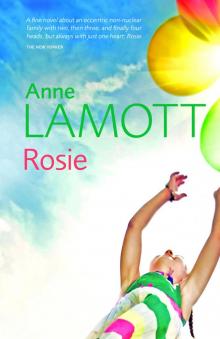 Rosie
Rosie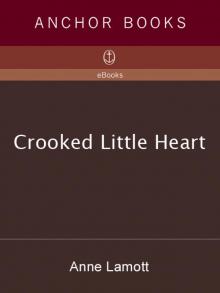 Crooked Little Heart
Crooked Little Heart Bird by Bird: Some Instructions on Writing and Life
Bird by Bird: Some Instructions on Writing and Life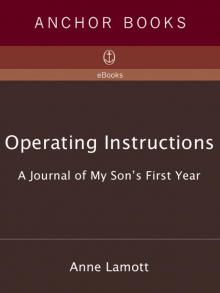 Operating Instructions: A Journal of My Son's First Year
Operating Instructions: A Journal of My Son's First Year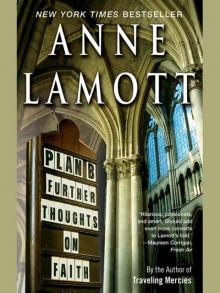 Plan B: Further Thoughts on Faith
Plan B: Further Thoughts on Faith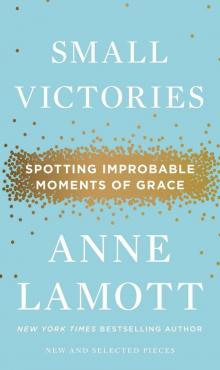 Small Victories: Spotting Improbable Moments of Grace
Small Victories: Spotting Improbable Moments of Grace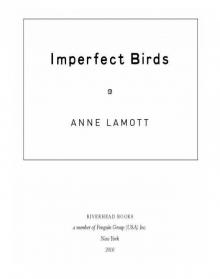 Imperfect Birds
Imperfect Birds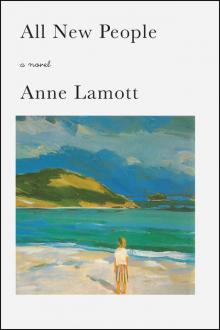 All New People
All New People Grace (Eventually)
Grace (Eventually)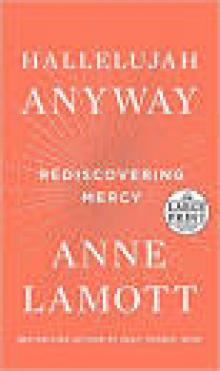 Hallelujah Anyway
Hallelujah Anyway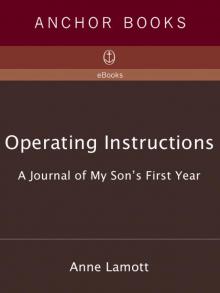 Operating Instructions
Operating Instructions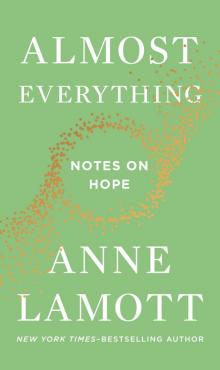 Almost Everything
Almost Everything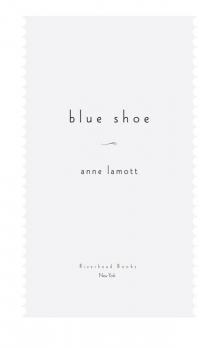 Blue Shoe
Blue Shoe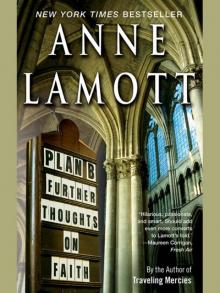 Plan B
Plan B Bird by Bird
Bird by Bird